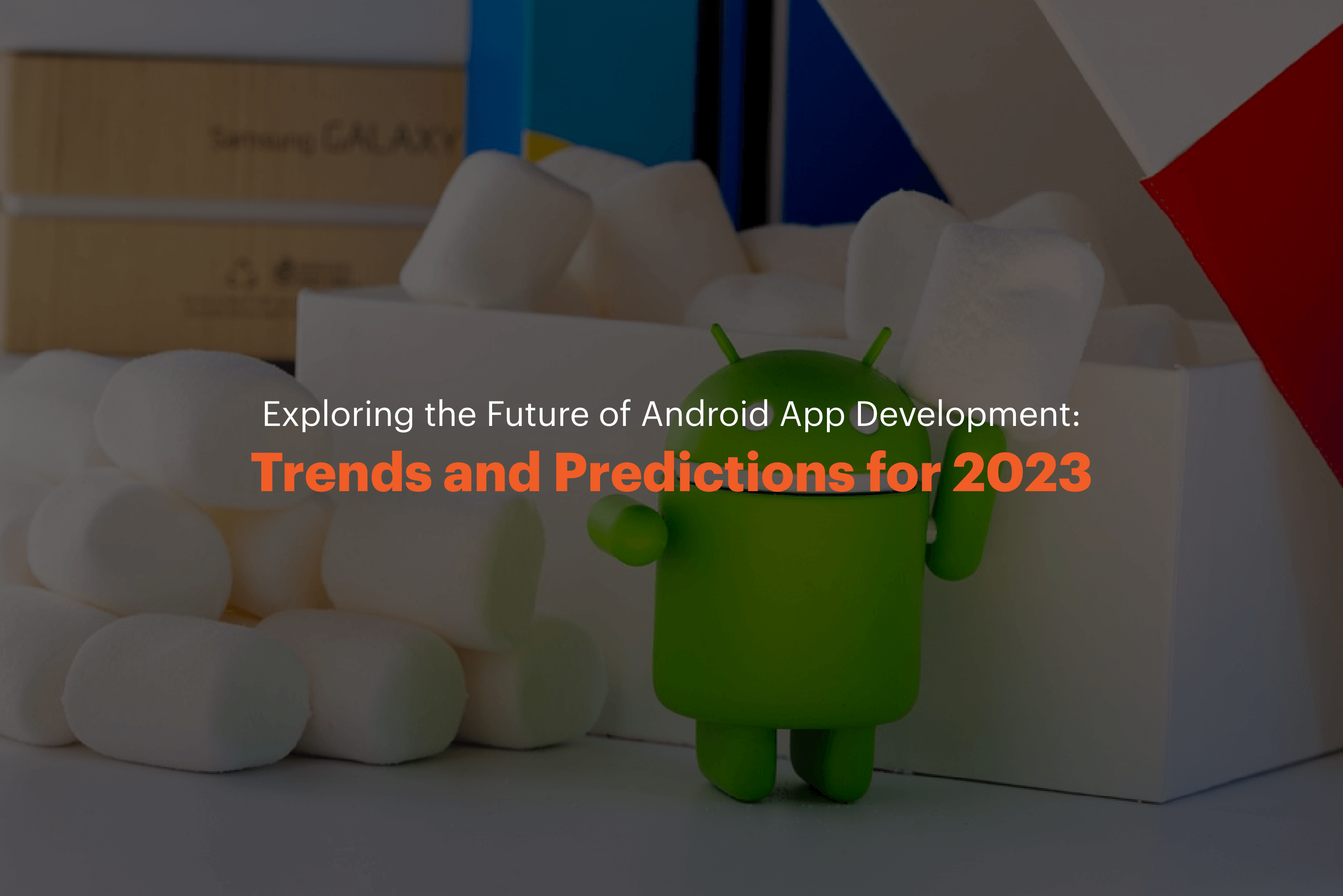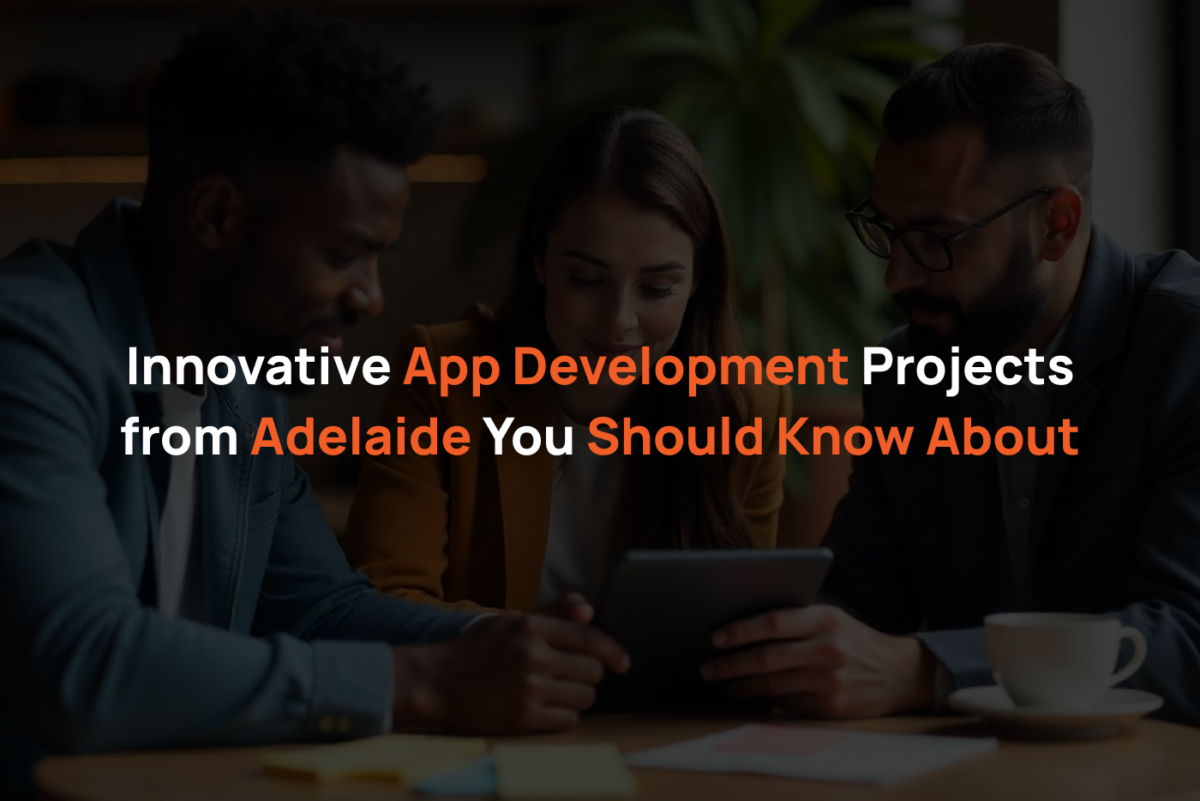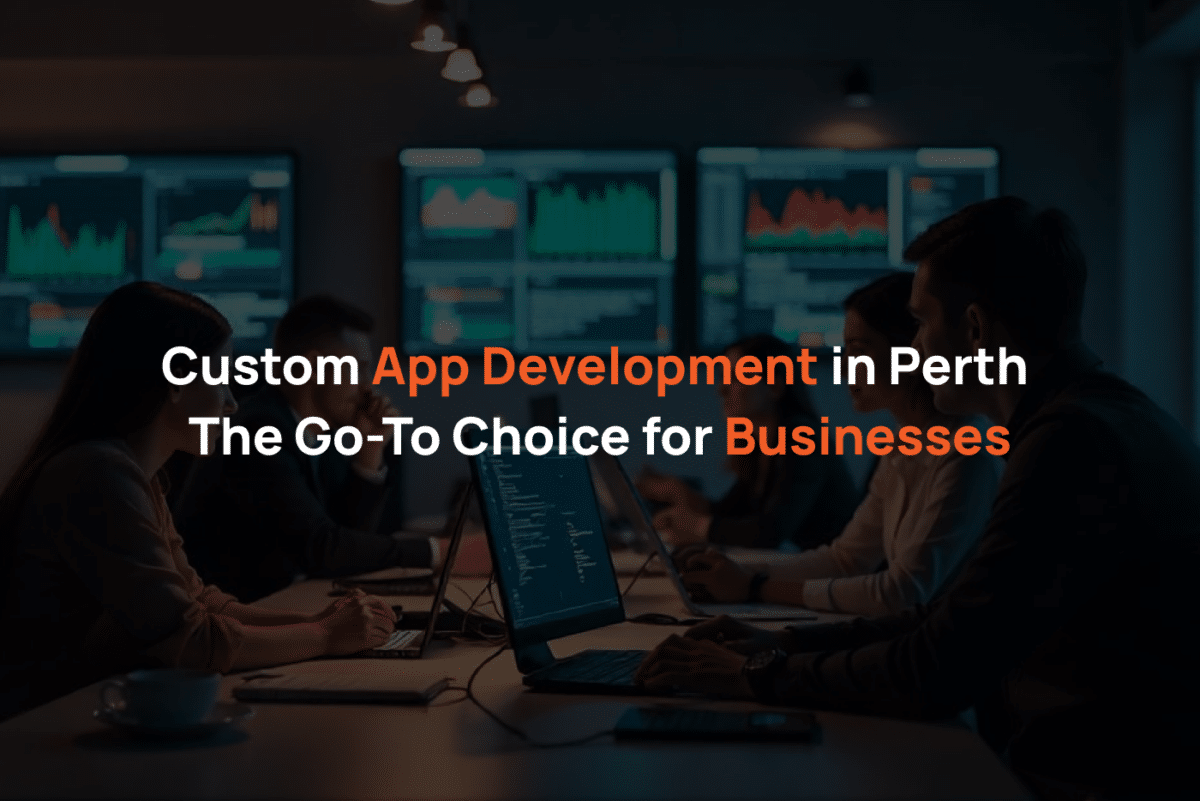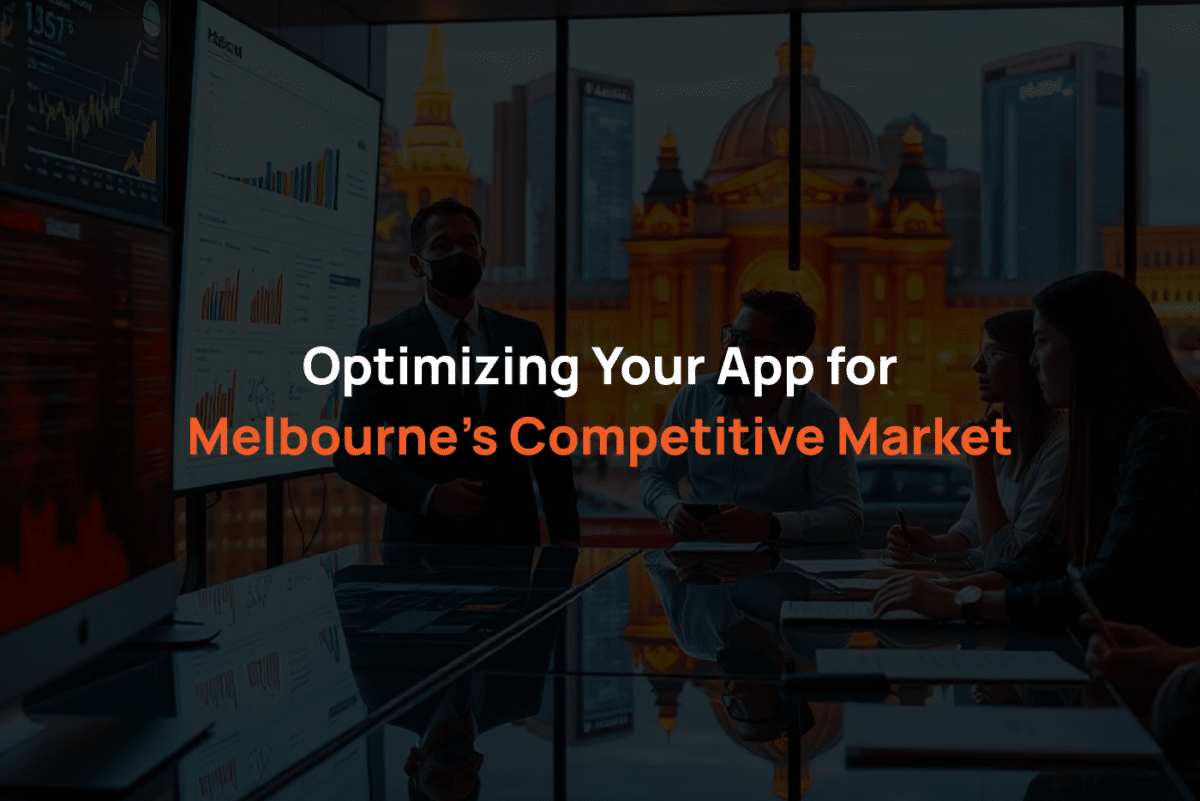Contact Us
If you have made it this far, you are here with a reason. You need our help! We are super friendly and genuinely care to help you succeed.
Enquire today to receive a FREE consultation with an App Guru.
Get in Touch
info [at] appgurus.com.au
Android is the world's most popular mobile operating system, with over 3 billion active devices and over 3 million apps on the Google Play Store. Android app development constantly evolves, driven by new technologies and changing user behaviors. In this blog, we will explore some key trends and predictions that will shape the future of Android app development in 2023 and beyond.
Rise of Artificial Intelligence
Artificial intelligence (AI) and machine learning (ML) are not new in Android app development but are becoming more advanced and widespread. These technologies enable apps to understand user behavior and preferences, provide personalized and seamless experiences, automate tasks, and enhance creativity. For example, AI-powered chatbots can help users find products, book services, or get support without installing an app. ML models can also generate content, such as music, lyrics, or stories, based on user input or preferences.
Some of the benefits of AI and ML for Android app development are:
● Improved user engagement and retention
● Increased efficiency and productivity
● Reduced development time and cost
● Enhanced innovation and differentiation
Increased Adoption of Augmented Reality
Augmented reality (AR) is another technology transforming Android app development. AR overlays digital content in the real world, creating immersive and interactive user experiences. AR can be used for various purposes, such as entertainment, education, gaming, shopping, navigation, or social media. For example, AR apps can let users try on clothes, furniture, or makeup before buying them; learn new skills or languages; play games with virtual characters; or share their moments with friends.
Some of the benefits of AR for Android app development are:
● Increased user engagement and satisfaction
● Enhanced customer loyalty and conversion
● Expanded market reach and opportunities
● Improved brand awareness and recognition
Accelerated Development with Low-Code/No-Code Platforms
Low-code/no-code platforms are software tools that allow users to create apps without writing code or with minimal coding. These platforms provide:
● Drag-and-drop interfaces.
● Pre-built templates.
● Components.
● Integrations that simplify and speed up app development.
Low-code/no-code platforms are especially useful for non-technical users who want to build apps for their personal or business needs without hiring developers.
Some of the benefits of low-code/no-code platforms for Android app development are:
● Reduced development time and cost
● Increased accessibility and inclusivity
● Enhanced flexibility and scalability
● Encouraged experimentation and innovation
Enhanced App Security and Privacy
App security and privacy are crucial aspects of Android app development that cannot be ignored. With the increasing number of cyberattacks, data breaches, and privacy violations, users are more concerned about their online safety and security. App developers must follow the best practices and standards to protect their apps and users from malicious actors. Some of the measures that app developers can take are:
● Using encryption, authentication, authorization, and biometrics
● Implementing secure coding techniques and testing tools
● Following the Android security guidelines and updates
● Complying with the relevant laws and regulations
Internet of Things (IoT) Integration
The Internet of Things (IoT) is a network of connected devices that can communicate with each other and exchange data over the Internet. IoT devices can range from smart home appliances, wearables, sensors, and cameras, to vehicles, factories, cities, or farms. IoT integration enables Android apps to control, monitor, or interact with these devices remotely or automatically. For example, IoT apps can let users adjust their homes' temperature, lighting, or security, track their health or fitness, or optimize their energy consumption.
Some of the benefits of IoT integration for Android app development are:
● Improved user convenience and comfort
● Enhanced efficiency and performance
● Reduced waste and cost
● Increased safety and security
Progressive Web Apps (PWAs)
Progressive web apps (PWAs) are web applications that behave like native apps on mobile devices. PWAs use web technologies such as HTML5, CSS3, JavaScript, and service workers to deliver fast, reliable, and engaging user experiences. PWAs can be accessed through a browser or installed on the home screen without downloading an app. PWAs can also work offline, send push notifications, and access device features such as a camera or GPS.
Some of the benefits of PWAs for Android app development are:
● Increased user reach and retention
● Reduced development time and cost
● Improved performance and usability
● Enhanced SEO and discoverability
5G Technology and App Optimization
5G technology is the next generation of mobile networks that promises faster speed, lower latency, higher bandwidth, better reliability, and lower power consumption than 4G. 5G technology will enable new possibilities for Android app development, such as high-quality video streaming, real-time gaming, cloud computing, edge computing, and more. However, to leverage the full potential of 5G technology, app developers need to optimize their apps for 5G compatibility, performance, and user experience.
Some of the ways to optimize apps for 5G technology are:
● Using adaptive bitrate streaming, compression, and caching techniques
● Implementing network slicing, load balancing, and fallback mechanisms
● Testing apps on different network conditions, devices, and locations
● Providing feedback, guidance, and options for users
Blockchain Integration
Blockchain is a distributed ledger technology that records transactions securely, transparently, and immutable. Blockchain technology provides decentralized app development solutions that enhance trust, transparency, and accountability while eliminating intermediaries and unauthorized access. Blockchain technology especially benefits the finance, healthcare, supply chain, and social media sectors.
Some of the benefits of blockchain integration for Android app development are:
● Increased data security and integrity
● Reduced data loss and corruption
● Improved data sharing and collaboration
● Enhanced user privacy and identity
Enhanced App Personalization
App personalization is tailoring an app's content, features, or design to suit each user's preferences, needs, or behavior. App personalization can improve engagement, satisfaction, and loyalty by delivering relevant, useful, and enjoyable user experiences. App personalization can be achieved using user segmentation, recommendation systems, dynamic content delivery, or adaptive UI/UX techniques.
Some of the benefits of app personalization for Android app development are:
● Increased user retention and conversion
● Reduced user churn and bounce rate
● Improved user feedback and ratings
● Strengthened user trust and loyalty
Emphasis on Accessibility
Accessibility makes an app accessible to all users regardless of their abilities, disabilities, or limitations. Accessibility can enhance user diversity, inclusion, and equality by providing equal opportunities for everyone to use an app. Accessibility can be implemented by following various guidelines such as WCAG 2.1 (Web Content Accessibility Guidelines), Android Accessibility Suite (a set of tools that help users with vision impairment), or Material Design Accessibility Principles (a set of principles that help create accessible UI/UX).
Some of the benefits of accessibility for Android app development are:
● Increased user reach and satisfaction
● Reduced legal risks and compliance issues
● Improved social responsibility and reputation
● Enhanced innovation and differentiation
Conclusion
Android app development is an exciting field constantly evolving with new trends and technologies. In this blog, we have explored some key trends and predictions that will shape the future of Android app development in 2023 and beyond. These trends include the Rise of Artificial Intelligence, Increased Adoption of Augmented Reality, Accelerated Development with Low-Code/No-Code Platforms, Enhanced App Security and Privacy, Internet of Things (IoT) Integration, Progressive Web Apps (PWAs), 5G Technology and App Optimization, Blockchain Integration, Enhanced App Personalization, and Emphasis on Accessibility. By following these trends, app developers can create innovative, user-friendly, and successful Android apps that stand out in the competitive market. You can contact me anytime if you need help developing your Android app. I hope you found this blog helpful. Thank you for reading! 😊


